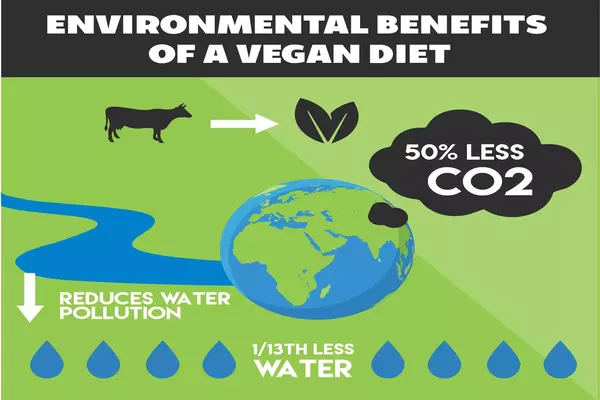Environmental vegetarianism is a philosophy and practice that seeks to reduce the impact of human activity on the environment by choosing not to consume meat and other animal products. This can be motivated by concerns about the environmental impact of animal agriculture, such as deforestation, water pollution, and greenhouse gas emissions. Environmental vegetarians may also believe that eating a plant-based diet is more sustainable and can help to reduce the pressure on global food resources.
It is the practice of choosing to not eat meat for the purpose of reducing one’s impact on the environment. This can include reducing carbon emissions from livestock production, preserving water and land resources, and reducing deforestation caused by clearing land for grazing or growing feed crops. Some people who practice environmental vegetarianism choose to eat only plant-based foods, while others may still eat some seafood or eggs.
This can include concerns about the use of resources, such as water and land, as well as the emissions produced by the meat industry, including greenhouse gases and pollution. Adopting a vegetarian or vegan diet can have a significant impact on reducing one’s environmental footprint, and many people choose to do so for this reason. This can include concerns about greenhouse gas emissions, deforestation, and water usage associated with animal agriculture. Some environmentalists argue that reducing or eliminating meat consumption can have a significant impact on reducing one’s carbon footprint and preserving natural resources.

Environmental vegetarianism is a dietary choice that is based on the belief that the production of meat, dairy, and eggs is a major contributor to environmental problems such as deforestation, water pollution, and greenhouse gas emissions. By choosing to not eat these animal products, environmental vegetarians aim to reduce their environmental impact and promote sustainability. This type of vegetarianism is also sometimes referred to as “eco-vegetarianism” or “planetarianism.”
Environmental vegetarianism is the practice of vegetarianism motivated by the desire to create a sustainable diet that avoids the negative environmental impact of meat production. Livestock is estimated to be responsible for 15% of global greenhouse gas emissions. As a result, the Intergovernmental Panel on Climate Change, among others, has advocated for a significant reduction in meat consumption in their 2019 special report and as part of the 2017 World Scientists’ Warning to Humanity.
Other than climate change, the livestock industry is the primary cause of biodiversity loss and deforestation, while also having a significant impact on environmental issues such as water and land use, pollution, and sustainability.
















